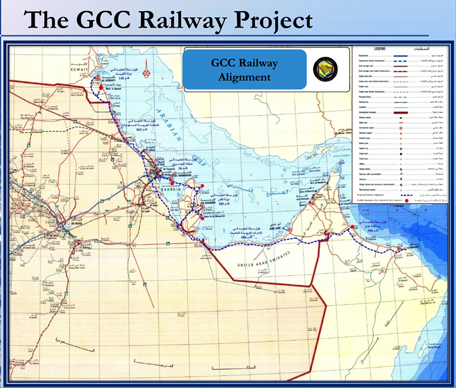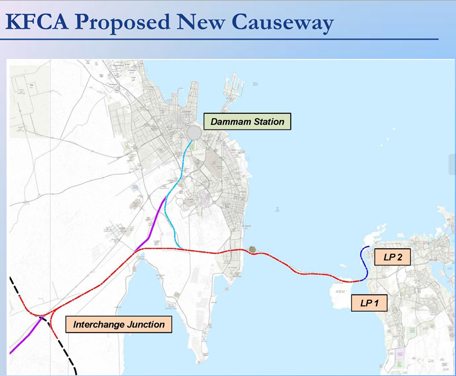- City Fajr Shuruq Duhr Asr Magrib Isha
- Dubai 04:27 05:45 12:20 15:47 18:49 20:07
Travelling by train will be like travelling by airplane once the GCC Railway is completed and operative, said representatives of the Gulf Cooperation Council (GCC).
The member states are cooperating and working towards open access between the countries when the anticipated railway crosses through the borders, therefore omitting the border posts, elaborated Ramiz Al Assar, World Bank resident adviser of the GCC Secretariat-General.
“It will be like traveling by train. If you get on board in Kuwait and get off in Oman, you will go through the border procedures in Oman,” added Ibrahim Al Sabti, Director of Transportation Department of the GCC Secretariat-General.
Procedures that normally take place at the physical border will be omitted from the trip, as to guarantee a smooth travel. “If the train had to stop at every border and go through the border procedures, this may take four hours every time and that is not convenient. In this way, only people getting off will go through the border procedures of a country,” explained Al Assar.
The GCC representatives spoke about the rail network in length at the Arabian World Construction Summit that was held by Meed in Dubai last week.
The omitting of border posts does not mean leniency in visa requirements, they informed. Passengers will have to be prepared before boarding, and have the required visa at hand, much like when travelling by train.

As soon as 2018, travelling by train through the six Gulf countries will become a reality, as the GCC Railway project is mandated to be completed in the beginning of that year, according to Al Assar. The railway will form a link between Oman, UAE, Saudi Arabia, Bahrain, Qatar, and Kuwait on a 2177km-long track carrying freight as well as passenger trains.
Currently, the first freight trains are running on a trial basis on a 150-km route between Ruwais and Habsan in the UAE, a route which is soon to be opened as the first operative part of the railway.
Etihad Railway, the authority responsible for the network in the UAE revealed earlier that it had secured the connection to Jebel Ali Port in Dubai, and that the railway would connect to neighbouring countries Saudi Arabia and Oman early-2017. In the final stage of the project the rail network in the UAE will connect to the Northern Emirates of Sharjah, Ras Al Khaimah and Fujairah.
Possible extensions
Further, possible extensions are under review as we speak. In 2010, the extension of the railway to Yemen was approved and Oman is currently looking at the options,” explained Al Assar, elaborating that the railway could be drawn to Salalah on a side track.

A feasibility and engineering study is carried out to realise the proposed new causeway to link Saudi Arabia and Bahrain with the GCC Railway, a link which would form an important contribution to the rail network, he added.
Regionally, plans to link the existing rail network of the Mashreq (eastern) and the Maghreb (western) region of the Middle East are under discussion, with possible links between Kuwait and Iraq, and Saudi Arabia and Jordan.

In an update of the latest developments, Al Assar said that Saudi Arabia has commenced the construction of about 200 km, and tendered the Detailed Engineering Design (DED) for the rest of the GCC Railway (450 km), while the UAE is about to award another 150 km of rail network. Oman and Qatar have awarded the Building and Design (DB) contracts, and Bahrain is expected to take steps this year.
In all likelihood, the GCC Railway Authority will be formed in 2015, which will to ensure successful implementation of the GCC Railway.
![]() Follow Emirates 24|7 on Google News.
Follow Emirates 24|7 on Google News.